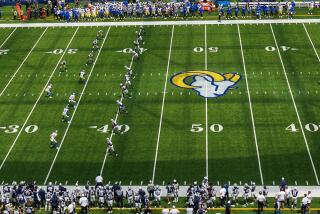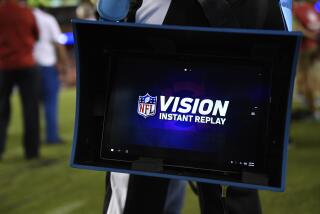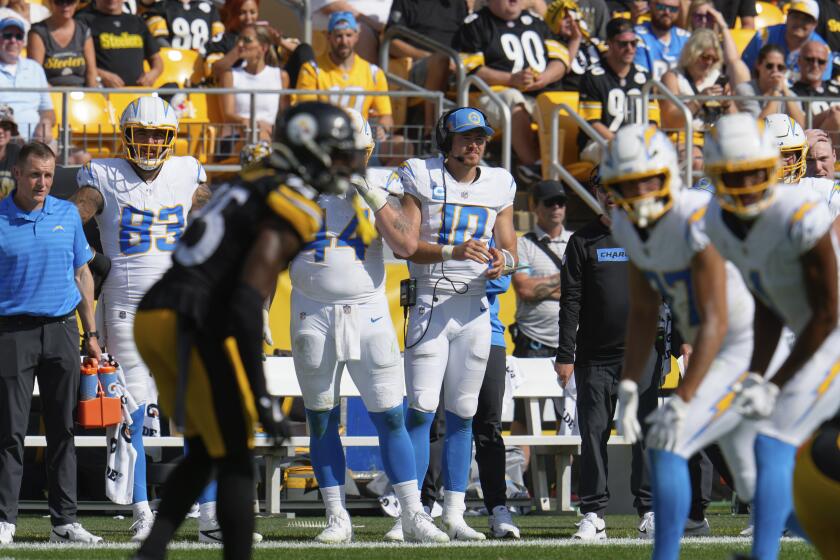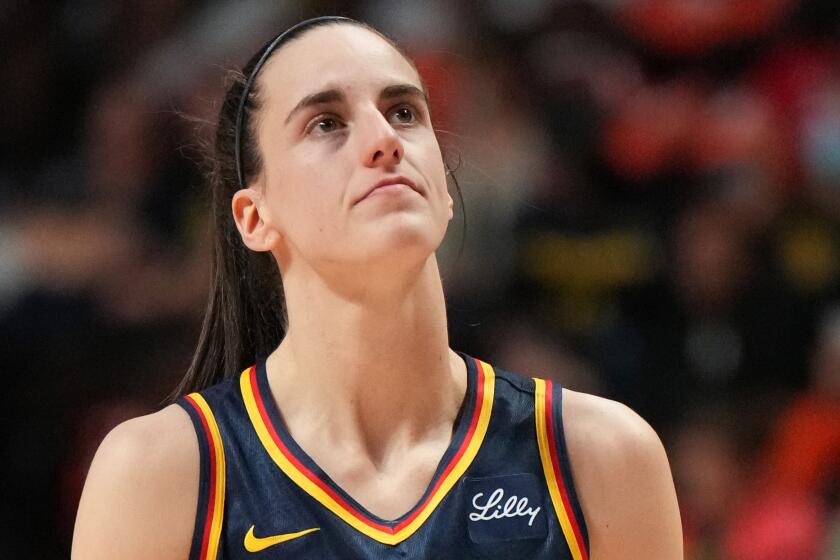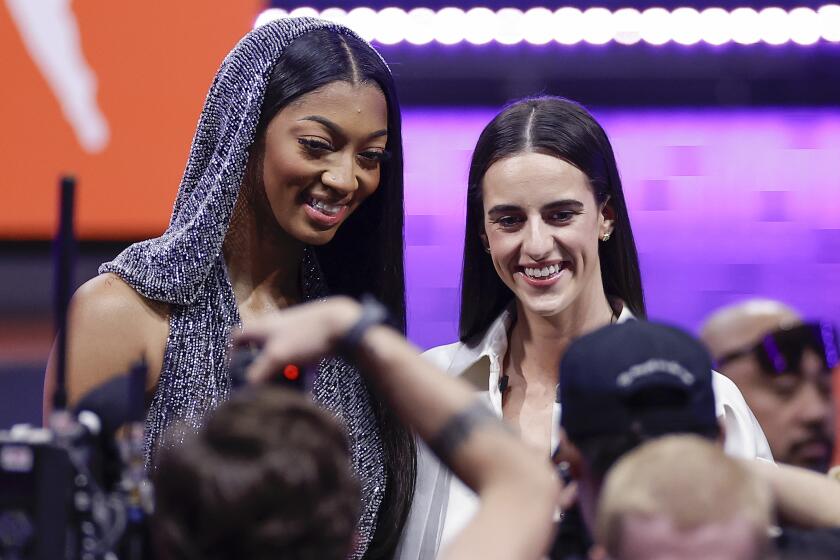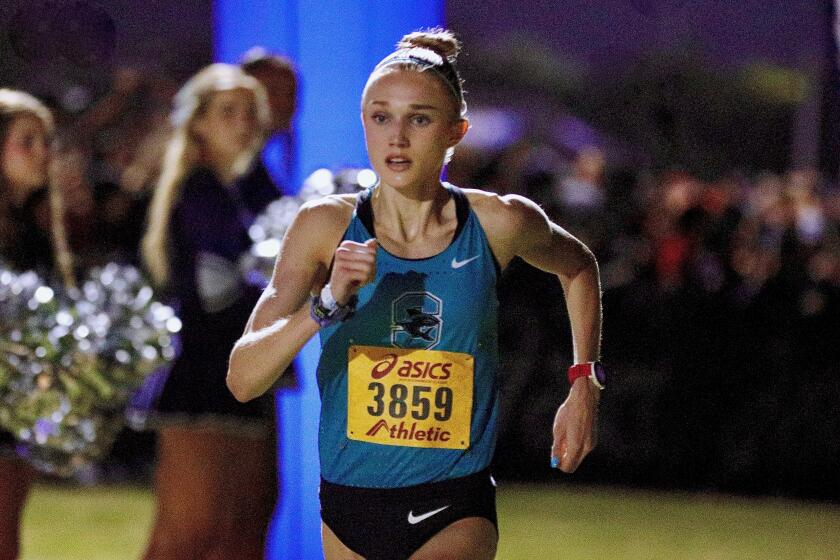NFL announces new personal conduct policy
The NFL put in place a strengthened and forceful personal conduct policy Wednesday, one that sharpens the focus on the problem of domestic violence but denies the players union what it has wanted most — the removal of Commissioner Roger Goodell from the discipline process.
Under the revised policy, which was approved unanimously by the 32 teams, Goodell will retain ultimate authority on appeals. He has been under intense scrutiny for his controversial handling of the Ray Rice and Adrian Peterson cases.
“The policy is comprehensive, it is strong, it is tough, and it is better for everyone associated with the NFL,” Goodell said during the league’s one-day quarterly meeting in Irving, Texas. “I have stated it many times: Being part of the NFL is a privilege, it is not a right. The measures adopted today uphold that principle.”
Among the features of the revised policy:
• A player formally charged with a crime of violence, including domestic violence, sexual assault and child abuse, can be placed on paid leave pending the legal resolution of his case.
• A committee of owners will oversee disciplinary matters, review the personal conduct policy at least annually, and recommend appropriate changes with advice from outside experts.
• The league will fund counseling and services for victims, families and violators of the policy.
The NFL Players Assn. has argued that the commissioner should not be involved in player punishment and that discipline should be decided by a neutral third party. The NFL is the only major professional league in which discipline is not ultimately decided by an impartial arbitrator.
In something of a concession to the union, Goodell will not be involved in the first stage of player punishment. He will appoint a disciplinary officer, with a criminal justice background, who will determine the initial discipline for violations of the personal conduct policy.
That is not a dramatic departure from the current system.
“If you go back over the history of the conduct policy, I would venture to say that in at least seven out of every 10 cases, the initial discipline was done by somebody other than the commissioner,” said Jeff Pash, NFL executive vice president and general counsel.
Added Pash: “To say, ‘The commissioner assesses the discipline, and then you can appeal that decision to the commissioner,’ maybe there’s a way of getting a little bit more divergent views in there.”
Underscoring the tension between the sides, the NFL Players Assn. issued a two-sentence statement Wednesday afternoon.
“Our union has not been offered the professional courtesy of seeing the NFL’s new personal conduct policy before it hit the presses. Their unilateral decision and conduct today is the only thing that has been consistent over the past few months.”
The cases of Rice and Peterson have cast a long shadow across the league this season and largely were the impetus behind the policy changes.
Last month, the league agreed to reinstate Rice after arbitrator Barbara Jones, a former U.S. district judge, ruled the former Baltimore Ravens star had been penalized twice for knocking out his fiancée in an elevator at an Atlantic City casino. Initially, Rice was suspended for two games, but when a second, more graphic video of the incident was made public, Goodell made the suspension indefinite.
The union called that ruling “a victory for a disciplinary process that is fair and transparent.”
In the case of Peterson, the Minnesota Vikings running back who struck his 4-year-old son with a tree switch, the league has imposed a suspension that will last at least until April 15. Goodell appointed former NFL executive Harold Henderson to hear that appeal, and a ruling is expected soon.
The NFLPA has argued that any changes to the personal conduct policy should be collectively bargained, and that any meetings between the league and the union have been “a farce.”
Pash said discipline by the commissioner has never been a subject of collective bargaining.
“We’ve had multiple rounds of collective bargaining since the first policy was instituted in 1997, and this policy does nothing more than implement and provide more specificity around what is a historically recognized power of the commissioner to define conduct detrimental to the league and the game of professional football,” he said. “That authority has been recognized by the NFLPA as long as there’s been an NFLPA.”
Not all experts agree the commissioner has the authority to change the personal conduct policy without input from the union.
“I’m sure the NFL will hear from the union in short order that this should have been bargained,” said Peter Carfagna, former chief legal officer at the IMG talent agency. “But I think they’re on pretty safe ground. It essentially makes it a stronger policy and reinforces that [Goodell] still remains the ultimate authority. They waived the right to grieve over that the last time. So I think it will stick.”
But Stanford law professor William B. Gould IV said Goodell “is trying to be judge and jury, and in some measure prosecutor as well.”
“I don’t see how this can be viewed as independent,” said Gould, former chairman of the National Labor Relations Board and current chairman of the California Agricultural Labor Relations Board. “Should the union decide to challenge it, it can or should pass muster under federal labor law, which precludes a party from unilaterally modifying an agreement.
“I don’t know what the union will say, but I’d be surprised if there wasn’t an ongoing fight.”
Twitter: @LATimesfarmer
More to Read
Go beyond the scoreboard
Get the latest on L.A.'s teams in the daily Sports Report newsletter.
You may occasionally receive promotional content from the Los Angeles Times.

